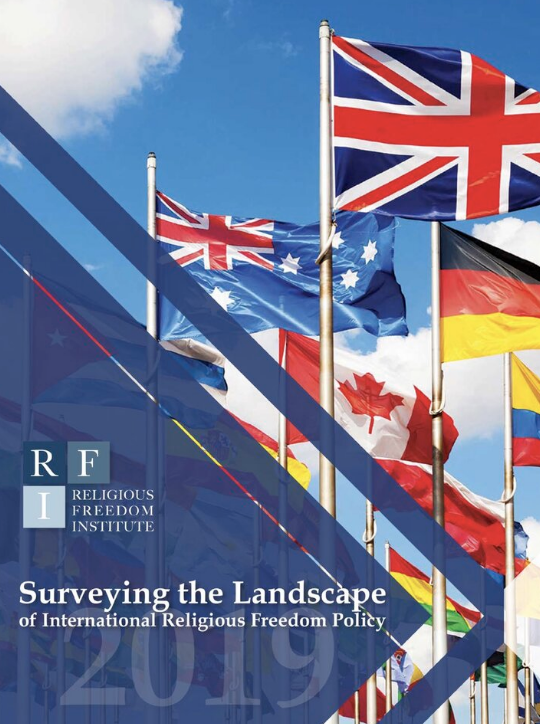Today the Religious Freedom Institute marks International Religious Freedom Day 2020. With only a week until the November 3, 2020 election, it is worth emphasizing that advancing international religious freedom should remain far above the partisan fray—it is a matter that should not depend on any election. The next U.S. administration, regardless of electoral outcome, must continue to prioritize international religious freedom. The status quo for countless vulnerable religious communities around the world is an intolerable crisis.
While there have been notable differences among them—both successes and failures—successive U.S. administrations have advanced religious freedom in America’s foreign policy.
The U.S. Congress passed, and President Bill Clinton signed, the International Religious Freedom Act (IRFA) in 1998, establishing in law the promotion of religious freedom in America’s foreign policy.
In a 2009 article in the Harvard Journal of Law & Public Policy, RFI President Thomas Farr’s assessment (along with his co-author and RFI Senior Fellow William Saunders) was that the George W. Bush Administration “focused a critically important spotlight on governments that persecute” based on religion and “took important steps toward reducing persecution.”
In 2016, Congress passed, and President Barack Obama signed, the Frank R. Wolf International Religious Freedom Act (Wolf Act), which amended and expanded IRFA with additional diplomatic tools and training requirements. Members of RFI’s executive leadership, including Farr and Vice President for Public Policy David Trimble, helped shape key provisions of the 2016 Wolf Act.
And the Trump Administration in June of this year issued a forceful Executive Order on Advancing International Religious Freedom, which stated, “Religious freedom for all people worldwide is a foreign policy priority of the United States, and the United States will respect and vigorously promote this freedom.”
Despite important progress in the past 22 years, continued “threats to religious freedom are many, including technology-enabled state repression of religion, non-state violence aided by inept governance, and blasphemy and apostasy laws that are regularly weaponized against religious minorities or dissenters.” Moreover, protracted displacement of Yazidis from their homeland in Iraq, marginalization leading to genocide against Burma’s Rohingya Muslim community, systematic repression of religious minorities in China, and increasing violence against Christians in Nigeria are among the vast range of egregious violations of religious freedom in our world today.
THE RFI BLOG

Myths of Religious Nationalism in America and Abroad

France’s Olympic Hijab Ban Violates International Law And Exacerbates Tensions

RFI Briefs USCIRF on Lessons from 25 Years of U.S. Designating Religious Freedom Violators

Thought Police: Protecting the People from Prayer

A Religious “Delaware”: Establishing a State Haven for Religious Corporations
CORNERSTONE FORUM

Challenges to Religious Freedom in Iraq and the Critical Need for Action

Public Bioethics & the Failure of Expressive Individualism

Religious Liberty in American Higher Education

Scotland’s Kate Forbes and the March of Secularism


